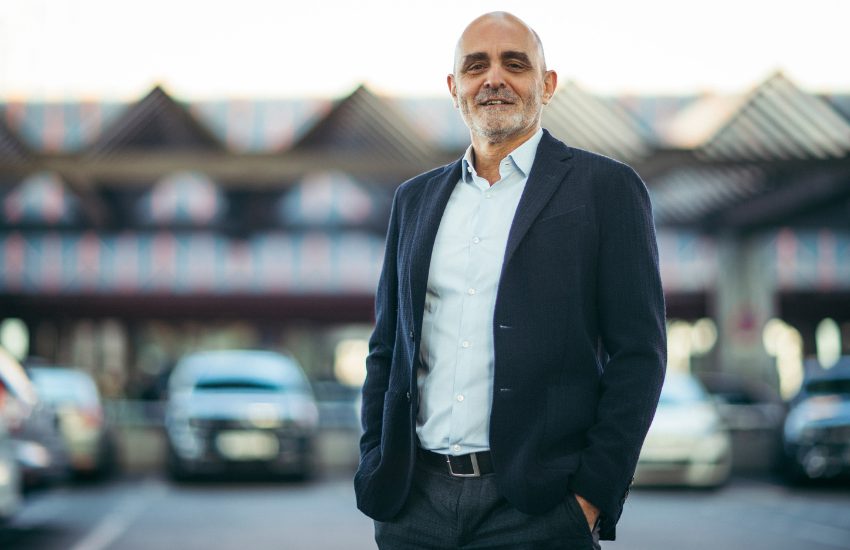In a recent speech during CECA's General Assembly, Antón Costas, current President of the Economic and Social Council, and possibly one of the most humanist economists of our intellectual landscape, referred to Obra Social as the second pillar of the welfare state. Undoubtedly, a statement that demonstrates the vital work that Obra Social carries out in our country. However, as the latest opinion poll conducted by CECA reveals, the size and scope of the Obra Social remains, with some nuances, relatively unknown. From this perspective, it seems appropriate to take advantage of these lines to briefly review what Obra Social is, its history and how it contributes to reinforcing the welfare state.
Obra Social is the group of charitable and social activities currently performed by the banking foundations that are members of CECA. These include, in particular, social welfare, but also education, research, cultural promotion and, more recently, environmental protection. Its origin dates back to the beginning of the eighteenth century with the emergence of the Pawnbroking Institutions (Montes de Piedad), the entities that are considered its ideological basis, as they emerged as elements of social development focused on the most vulnerable people. Three centuries later, this mission is still as valid as it was then.
Historically, Obra Social has been developed by the savings banks, but with the entry into force in 2014 of the Law on Savings Banks and Banking Foundations, these were split into two separate entities: credit institutions, which provide banking services, and banking foundations, that manage the Obra Social. Nevertheless, despite this de facto separation, the link between the two entities is maintained to ensure that the profits from the banking business continue to flow back into society. Thus, the foundations maintain a significant stake in the capital of the new banks, which allows them to finance an important part of their activity through the dividends of the investee entities.
Eight years after this reform, there is consensus that the new model has effectively contributed to preserving the founding purpose of the Obra Social. In this regard, it should be recalled that, from its inception, its priority mission was to make up for the deficient provision of public services that had long characterised our country. Thus, as a general rule, Obra Social took over the role that should have been played by the state in certain areas, but especially with the most disadvantaged sectors. Subsequently, with the development of the welfare state, the public sector has taken on an increasingly important role in the social ambit, but Obra Social has continued to play an essential role in complementing the actions of the different public administrations.
Thus, it is illustrative that since the creation of the banking foundations in 2014, the investment of Obra Social has reached an amount equivalent to 28.6% of the General National Budget earmarked for Social Services and Social Promotion during the period; in total, an investment of €6,172 million which has enabled the Obra Social of CECA member entities, year after year, to become the largest private social investor in our country.
Apart from its economic contribution to the welfare state, Obra Social also complements it insofar as it focuses on meeting those needs that, in general, cannot be addressed by the public sector, or if they are, they are addressed in a basic manner given the complexities that often constrain public policies, including budgetary, bureaucratic, political and, in general, those derived from a sometimes excessively generalist approach. Without these constraints, Obra Social can take action in a more segmented and flexible manner, adapting its programmes to the specific demands of society and reorienting them with agility when required by social emergencies. The latter was evident during the early months of the pandemic and more recently with the war in Ukraine.
235 million payees from 2014
In addition, thanks to its high degree of capillarity and territorial roots, the Obra Social of the CECA member entities maintains a close relationship with the groups it assists, enabling it to detect their needs in advance and attend to them proactively. All this explains, for example, why in recent years, in response to the sharp increase in social inequality in our country, the programmes of Obra Social have been able to prioritise attention to the most vulnerable groups, that is, people at risk of social exclusion, people with specific needs, people over 65 or children and young people. Thus, in 2021, these groups represented 60% of the total investment, a percentage that has remained relatively stable since the 2014 reform and which, since then, has allowed more than 235 million beneficiaries to be reached, that is, the equivalent of the current population of Brazil.
In view of the above, we can therefore say that, due to their historical trajectory, their economic contribution and the differential value of their welfare work, the Obra Social work undertaken by CECA's member entities plays an essential role in our society, contributing in a tangible way to its structuring and cohesion. And although today, with the surge in Corporate Social Responsibility (CSR), voluntary business initiatives to contribute to social improvement are becoming more widespread, this work is not yet comparable, either in its scope or its impact, to that carried out by the Obra Social. However, it is to be expected that the social actions of the private sector will be strengthened and consolidated over the coming years. Undoubtedly, in this journey, the Obra Social, as a historic pioneer of CSR, can be the benchmark to follow.
Alberto Aza is the spokesperson for CECA












